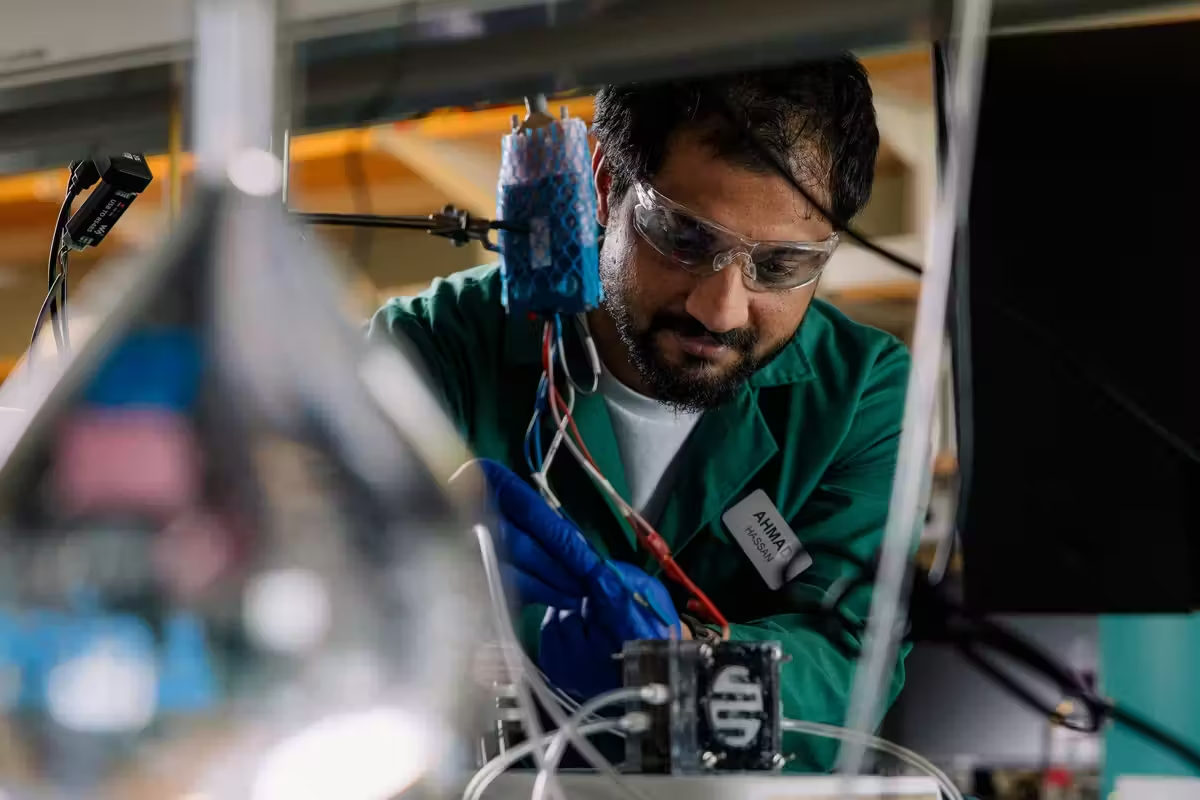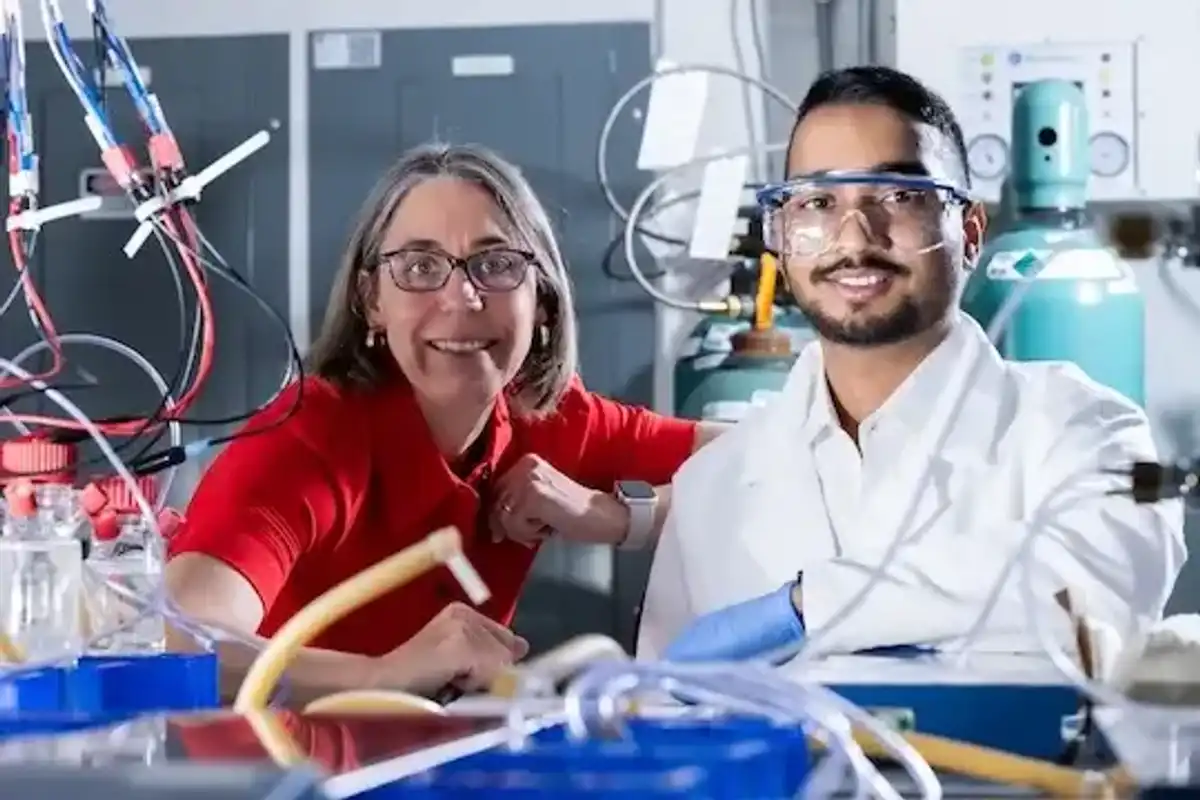Hiring is tough, but retaining great people is even harder. Ask almost any manager what keeps them up at night, and the answer usually comes back to the same thing: How do we keep our best employees growing here instead of looking elsewhere?
One reliable approach has held up across industries. When people see their employer investing in their development, they’re more likely to stay, contribute, and imagine a future with the organization.
The data backs this up. Employees who take part in ongoing training are far less likely to leave, and the effect is especially strong for younger workers. One national survey found that 86% of millennials would stay with an employer that invests in their development. Companies that build a real learning culture see retention jump by 30-50%. The pattern is consistent: When people can learn and advance, they stay.
The ROI of executive education
Professional development signals value, but it also builds capability. When people have access to structured learning, they become better problem-solvers, more adaptable, and more confident leading through change.
That's the focus of Executive Education at Rice University's Jones Graduate School of Business. The portfolio is built for the realities of modern leadership: AI and digital transformation courses for teams navigating new technologies, and deeper programs in innovation and strategy for leaders sharpening long-term thinking.
“People, managers, professionals, and executives in all functional areas of business can benefit from this program,” notes Jing Zhou, Mary Gibbs Jones Professor of Management and Psychology at Rice. “We teach the fundamental principles of how to drive innovation and broaden the cognitive space.”
That perspective runs through every offering, from the Rice Advanced Management Program to the Leadership Accelerator and Leading Innovation. Each program gives participants practical tools to think strategically, work across teams and make meaningful change inside their organizations.
Building the leadership pipeline
Leadership development isn’t a perk anymore. It’s a strategic need for any organization that wants to grow and stay competitive.
Employers know this — nearly two-thirds say leadership training is essential to their success — yet employees still report feeling stalled. Reports find 74% of employees feel they aren’t reaching their potential because they lacked meaningful growth opportunities.
Rice Business designs its Executive Education programs to address that gap. The Rice Advanced Management Program, for example, supports leaders preparing for C-suite, board, or enterprise-level roles. Its format — two in-person modules separated by several weeks — gives participants space to test ideas at work, return with questions, and build on what they’ve learned. The structure fits demanding executive schedules while creating room for deeper reflection and richer peer connections.
Just as important, the program helps senior leaders align on strategy and culture. Participants develop a shared language and build stronger relationships, which translates into clearer decision-making, better collaboration, and less burnout across teams.
Houston’s advantage
Houston gives Rice Business Executive Education a distinctive edge. The city’s position in energy, healthcare, logistics, and innovation means participants are learning in the middle of a global business ecosystem. That proximity brings a mix of perspectives you don’t get in more siloed markets, and it pushes leaders to apply ideas to real-world problems in real time.
The expertise runs deep on campus, as well. Participants learn from faculty who are shaping conversations in their fields, not just teaching from a playbook. For many organizations, that outside perspective is a meaningful complement to in-house training — a chance to stretch thinking, challenge assumptions, and broaden leadership capacity.
Rice Business offers multiple paths into that experience, from open-enrollment programs like Leading Organizational Change, Executive Leadership for Women, or Driving Growth through AI and Digital Transformation to fully customized corporate partnerships. Across all formats, the focus is the same: education that is practical, relevant, and built for impact.
Investing in retention and results
When organizations make room for real development, the payoff shows up quickly: higher engagement, stronger leadership pipelines, and lower turnover. It also shapes the culture. People are more willing to take risks, ask better questions, and stay curious when they know learning is part of the job.
As Brent Smith, senior associate dean for Executive Education at Rice Business, explains, “There’s a layer of learning in leadership that’s about helping people adopt a leadership identity — to see themselves as the actual leader for their organization. That’s not an easy transition, but it’s the foundation of lasting success.”
For companies that want to build loyalty, deepen leadership capacity, and stay competitive in a fast-changing environment, investing in people isn’t optional. Rice Business Executive Education offers a clear path to do it well. Learn more here.
Check out upcoming programs:












 Houston researchers make headway on developing low-cost sodium-ion batteries
Houston researchers make headway on developing low-cost sodium-ion batteries

